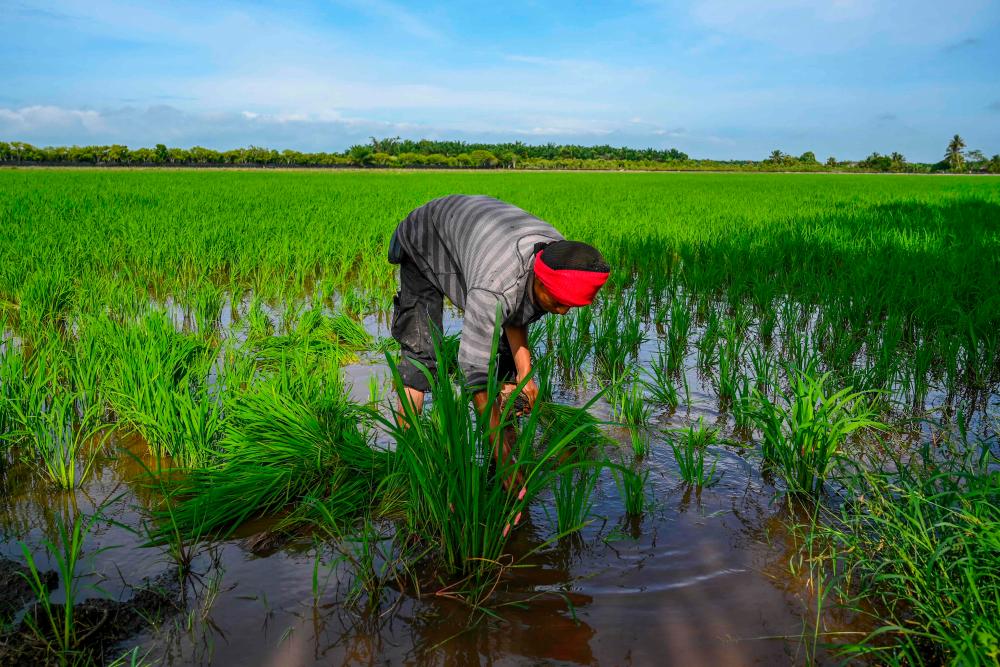DUE to the global climate anomalies and the Covid-19 pandemic, food supply in Malaysia is facing disruptions, while food prices have skyrocketed. The issues of unsustainable agriculture and unsound food safety policies need to be addressed to prevent the unstable food supply from impacting low-income groups and agricultural development from causing irreversible damage to the environment.
Malaysia’s food policy is facing huge challenges, among which the most urgent is the skyrocketing global food prices.
When food supply is inadequate and unstable, low-income groups will inevitably bear the brunt, while the middle class will also suffer from the increasing basic cost of living.
Due to the lack of proper policy formulation and supervision, Malaysia’s agriculture in the past 50 years has grown at the expense of the environment and sustainable development.
Given that many challenges have emerged in recent years, including worsening soil quality, climate change, inadequate energy and labour shortage, the current agricultural model can no longer meet the demands of ensuring food security and sustainable agricultural development in the future.
The Food Price Index reached a 10-year high, thus leading to the possibility of exacerbating the disparity between the rich and the poor as well as social instability. The Index, launched by the United Nations Food and Agriculture Organisation, soared to 134.4 in November 2021 (the index recorded 100 in 2016). In comparison with the index in 2020, there was an increase of 27% over the same month in 2020, which was at an all-time record high since June 2021.
Although agriculture is one of the important economic sectors in Malaysia, it is affected by the tropical climate and economic landscape as a whole.
The agricultural sector is mainly composed of cash crops such as palm oil, rubber and cocoa. Instead, the cultivation of food crops such as vegetables and fruits is not common.
While the rice production sector has only achieved a self-sufficiency rate of about 70%, Malaysia has always been dependent on imported vegetables and fruits because our own production cannot fulfil the needs of the local market.
There are several unsustainable aspects of Malaysia’s agricultural production model. For instance, Malaysia is almost entirely dependent on cheap migrant workers.
Also, as an oil-producing country, we rely on imported chemical fertilisers, yet the small- and medium-farms are not guaranteed by policies. Besides, soil erosion caused by continuous soil degradation, genetic erosion and depletion of freshwater resources are all threatening the basic conditions of producing food.
After the outbreak of the Covid-19 pandemic in 2021, we have witnessed how these changes impacted our food market. Due to the border closure, migrant workers were only allowed to leave but not enter the country, thus leading to severe worker shortages in the agricultural sector. As such, many farmers and agricultural operators were forced to reduce the scale of farming.
In addition, chemical fertilisers are made of ammonia, while natural gas is the main component to synthesise ammonia. Since the price of natural gas, which is supposed to replace coal, skyrocketed, the prices of ammonia and chemical fertilisers also increased tremendously as a result. All these factors increased the cost of agricultural production and exacerbated the plight of small- and medium-sized farmers.
At this juncture, reducing inflation caused by food supply shortages should be the government’s top priority.
Climate change, worker shortages, as well as inadequate chemical fertilisers, seeds and fuel supplies are all serious issues that need to be addressed immediately to ensure that all citizens can continue to have access to affordable, adequate and healthy food.
Therefore, the government should embrace a new development mindset and come up with a comprehensive plan in order to transform the current agricultural model into a sustainable one. This will allow us to increase food supply despite the increasing limited land and energy resources, improve the well-being of farmers and bring about positive changes to the environment.
Given that agriculture and the environment are closely related, developing sustainable agriculture and integrating agricultural and environmental policies will bring about positive spillover effects to both sectors.
As such, the federal government must take the lead by formulating clear development policies and action plans, involving state and local governments, farmers and farmers’ organisations, as well as the private sector and non-gornmental organisations, and utilise economic instruments and incentives to encourage farmers to move towards sustainable agriculture.
The government should change the stereotype that agriculture belongs only to farmers by incorporating modern agricultural studies into primary and secondary education, as well as develop training courses in specialised agriculture and related fields.
In the future, these initiatives will allow small- and medium-sized farmers to gain access to professional services related to soil management, climate change, pest management and water management at a lower cost.
The ultimate goal is to fully utilise modern technology to establish a healthy agricultural ecosystem, which consists of developed upstream, midstream and downstream sectors, in order to completely transform the sector.
Chiong Yoke Kong is Adun for Tanah Rata (Cameron Highlands, Pahang). Comments: letters@thesundaily.com









